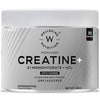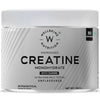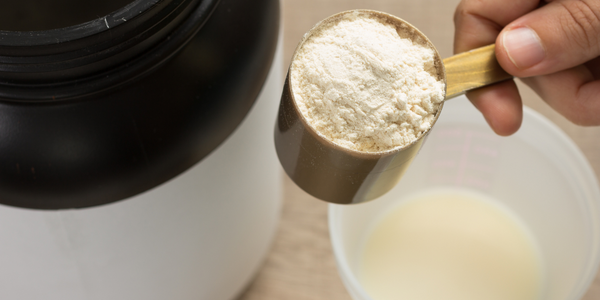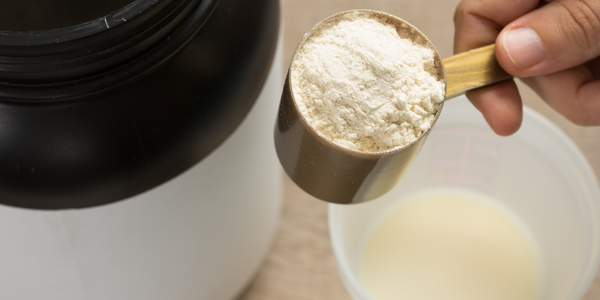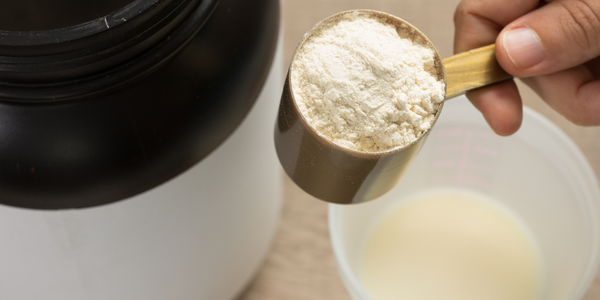Creatine is best known for its role in muscle growth and physical performance, but its benefits go far beyond the gym. Emerging research highlights its potential to support brain function, enhance cognitive performance, and promote mental well-being. In this blog, we’ll explore how creatine fuels the brain’s energy metabolism, its impact on mental performance, and its role in cognitive health.
What is Creatine?
Creatine is a natural compound found in muscle cells that helps fuel energy production during intense workouts and heavy lifting. It plays a key role in supporting muscle performance and growth, similar to amino acids, which are building blocks for protein. About half of the body’s creatine comes from dietary sources like red meat and seafood, while the rest is produced in the liver and kidneys. Creatine is stored in muscles as phosphocreatine, an energy reserve that boosts ATP production. Supplementing with creatine enhances strength, endurance, recovery, and muscle growth by increasing ATP levels and supporting cellular processes.
Creatine and Brain Energy Metabolism
The brain is one of the most energy-demanding organs in the body, consuming over 20% of total energy despite accounting for just 2% of body weight. Given creatine’s role in energy production, supplementing with it may offer significant cognitive benefits.
Research shows that oral creatine supplementation can effectively increase creatine levels in the brain, potentially helping to combat mental fatigue. By providing additional energy support, creatine may contribute to enhanced brain function, focus, and overall cognitive performance.
Let’s explore the different ways creatine supports brain health.
Role of Creatine in Cognitive Health
Enhances Memory and Learning
Creatine isn’t just for muscles—it also boosts brain power! Research shows that creatine supplementation enhances memory and cognitive performance, particularly in tasks requiring quick thinking and short-term recall. One study found that those who took creatine performed better in memory-based tasks than those who didn’t. This makes creatine a great addition for students, professionals, or anyone looking to sharpen focus and process information more efficiently.[NIH]
Increases Mental Energy and Focus
Creatine isn’t just for physical energy—it also supports mental stamina. By Optimizing ATP production & supplying your brain with an extra energy boost, creatine helps combat mental fatigue, keeping you sharp and focused during long work or study sessions. Whether you’re preparing for exams or tackling a demanding project, creatine may enhance mental clarity and delay exhaustion, helping you stay productive and alert for longer.[NIH]
Improves Cognitive Performance
Cognitive performance encompasses various functions, including attention, problem-solving, and decision-making. Research indicates that creatine supplementation can enhance cognitive flexibility, which is the ability to switch between tasks and think creatively. This benefit is particularly valuable in high-pressure environments where quick thinking and adaptability are required.[NIH]
Neuroprotective Effects
Studies suggest that creatine can help reduce oxidative stress and inflammation in the brain, both of which are linked to neurodegenerative diseases like Alzheimer’s and Parkinson’s. Additionally, creatine has been found to support mitochondrial function, which is crucial for brain cell health and longevity.[NIH] These findings suggest that creatine may play a preventive role in cognitive decline associated with aging.[NIH]
Uplifts Mood and Supports Mental Wellbeing
Mental health is deeply intertwined with brain energy metabolism. Some studies indicate that creatine supplementation can help alleviate symptoms of depression and anxiety, particularly in individuals with low energy levels.[NIH] By stabilizing neurotransmitter activity and reducing mental fatigue, creatine may contribute to overall mental resilience and stress management. While creatine isn’t a replacement for mental health treatment, it could be an adjunctive tool to support overall well-being.
Conclusion
Creatine isn’t just for athletes—it’s a powerful brain fuel, too. As a key player in cellular energy production, it helps enhance memory, focus, and cognitive flexibility. Whether you're a student pulling an all-nighter, a professional managing tight deadlines or simply looking to stay sharp as you age, creatine can be a valuable tool for mental performance.
Research suggests it may help reduce brain fog, combat mental fatigue, and even support mood by influencing neurotransmitter activity. Its neuroprotective properties could also play a role in preventing cognitive decline.
While creatine is naturally found in foods like red meat, fish, and eggs, dietary sources may not always provide enough. For optimal benefits, supplementing with clean, high-quality creatine can be an effective way to support brain health without unwanted side effects.
FAQs
1. What is creatine, and how does it affect the brain?
Creatine is a natural compound that helps produce ATP, the body's primary energy source. In the brain, it supports energy metabolism, enhances mental stamina, and may improve memory, focus, and cognitive flexibility.
2. Can creatine improve cognitive performance?
Yes! Research suggests that creatine supplementation can enhance memory, mental clarity, and problem-solving skills while reducing mental fatigue. It may also support brain health by reducing oxidative stress and inflammation.
3. Are there any side effects associated with creatine supplementation?
Creatine is generally safe when taken in recommended doses. Some people may experience mild bloating or water retention, but there are no significant adverse effects on brain health or cognitive function.
4. How much creatine should one take to experience cognitive benefits?
A daily dose of 3-5 grams of creatine monohydrate is typically recommended to support cognitive function, improve focus, and enhance mental energy over time.








